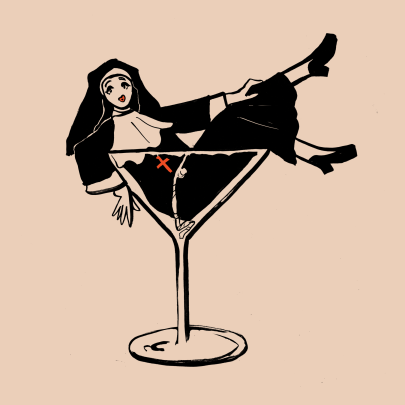Mar 11, 2020 Theatre
Metro talks to Joel Bray, the man behind this uniquely immersive and intimate encounter, an experience performed to only 20 people at a time.
Going to see Biladrurang and making a night of it? Here are our picks for the best pre-show restaurants this Arts Festival.
Other Metro picks: Cold Blood, Estère Dalton: Into the Belly of Capricorn.
The first thing Joel Bray would like you to know about his deeply intimate play about the alienating experience of racism in Australia is that it’s actually “a bit of a romp”.
The overarching themes — heartbreak, racism, and lack of belonging — belie the lightness of Biladurang, a hit in last year’s Sydney Festival, which will be performed to groups of about 20 people at a time over two weeks during the Auckland Arts Festival.
Bray, a light-skinned Aboriginal man who grew up queer in a Pentecostal Christian community, will perform the play for the 100th time while in Auckland. He’s yet to even remotely tire of it, saying he loves working with such small audiences: he can see the way people quirk their brows or purse their lips or smile, and tailors each show as he goes to suit the people who are there on the night.
Each evening…, a group of strangers will gather in the foyer of Auckland’s Metropolis Residences and Bray, affecting spontaneity, will invite them up to his room. “Then, when they arrive, I’m not quite sure what to do, and the show continues from that point.”
Biladurang tells the story of Bray’s never feeling like he belonged; of being not quite white and not quite black, of being raised religious but knowing he was queer. He conveys this through the prism of a story his Wiradjuri grandmother told him about the platypus (biladurang). The animal was perceived as a mutant: the legend tells of an animal born from a duck and a water rat, with a bill and webbed feet, who lays eggs, but has a mammal’s body.
“My personal biography has always been that of a fish out of water,” Bray says. After moving from Australia, he spent 10 years in Israel with a partner, but when that relationship ended, he felt disconnected and homesick. “I had basically stopped telling anyone I was Aboriginal. That’s because if you’re fair — and I’m very fair, people think I’m from Sweden — it is difficult trying to explain to someone in Israel or Eastern Europe, first trying to tell them what an Aboriginal person is, and then trying to explain to them why I don’t look like the Aboriginal person they expect.”
Unable to stay in Israel, Bray spent much time on the road trying to figure out where to settle next, living itinerantly in artists’ residences, Airbnbs and hotel rooms. “Hotel rooms are a little bit like airports — they’re neither here nor there, they’re in-between spaces. I was really feeling this yearning to reconnect with my family and my home and my country — and I mean country in the Aboriginal sense of the term, my ancestral homeland.” In his mid-30s, he was also single for the first time in 10 years, and didn’t know what that meant. Grindr, for one, had not been something he’d ever had to contend with.
The neither-here-nor-there-ness he’d always felt was heightened during this unsettled period. Bray began writing to process his thoughts, reading the pieces aloud to himself while alone in hotel rooms. It was here that what Biladurang would become was born. The show “weaves together choreography, storytelling and audience participation,” he says.
Audience participation is always a bit scary, Bray acknowledges, “I think because people have often had the experience of sitting in the front row of a stand-up gig and getting roasted.” He has no intention of embarrassing anyone. “It keeps the work really alive and really fresh — it’s like a different show every time,” he says. “It’s kind of a space where there’s lots of humour and lots of fun but we also have a dialogue around these more serious issues.”
Biladurang is autobiographical and so deals with Bray’s homeland, Australia, but New Zealand as a colonised country is full of people grappling with similar feelings of displacement. “Either because you’re indigenous and your land and your culture and the traditional structures have been taken away from you, or because you’re the descendant of [colonialists] who were torn from their families and their homelands on the other side of the world, or you’re a refugee. So the story of being in a place where you don’t fit is actually, ironically, the thing that connects us all.”
Biladurang, 11-15 and 18-22 March, Auckland Metropolis Residences.






